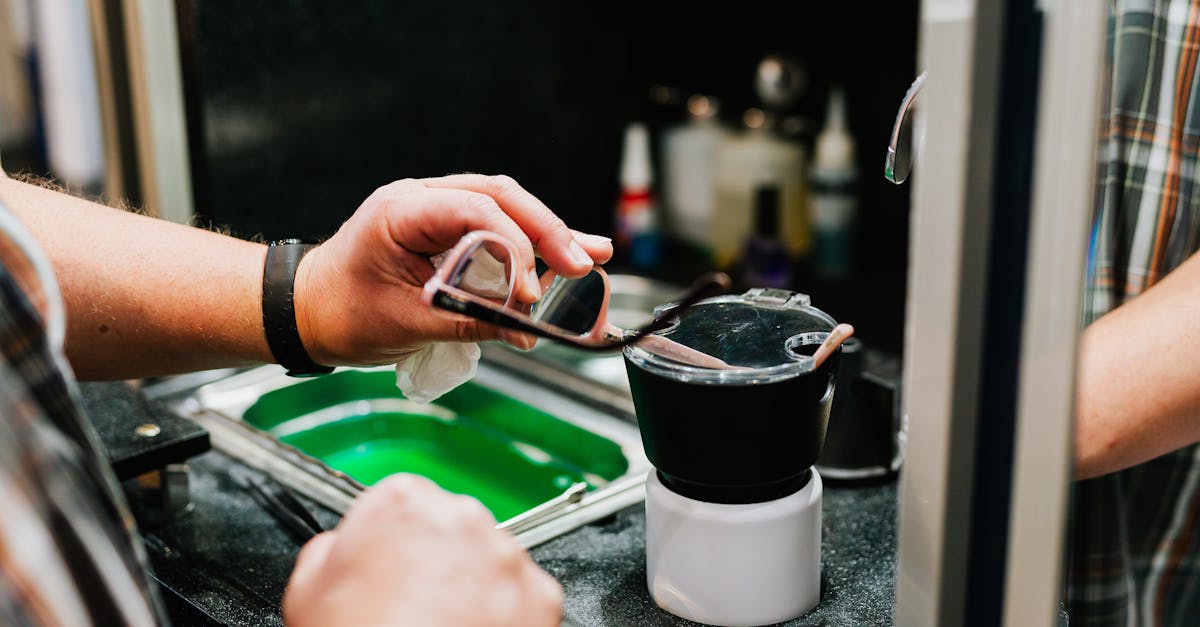Key Takeaways
- Importance of Maintenance: Regular maintenance is essential for safety and compliance, with frequent water quality tests safeguarding swimmers from harmful bacteria.
- Health Regulations Compliance: Understanding and adhering to local, state, and federal health regulations ensures pool safety and helps avoid fines or closures.
- Key Maintenance Tasks: Critical tasks include daily water quality testing, routine equipment maintenance, and thorough pool cleaning to enhance both safety and aesthetics.
- Safety Protocols: Certified lifeguards and well-defined emergency response procedures are vital for ensuring swimmer safety at commercial pools.
- Record Keeping: Accurate documentation of maintenance activities and compliance metrics supports regulatory adherence and aids in identifying potential issues proactively.
- Efficiency Tools: Utilizing service business software and mobile workforce management solutions streamlines maintenance tracking, scheduling, and communication, enhancing overall pool management.
Maintaining a commercial pool isn’t just about keeping the water clean; it’s a complex task that demands attention to detail and strict adherence to health regulations. Did you know that nearly 60% of public pool inspections reveal at least one violation? This statistic highlights the importance of understanding the specific maintenance requirements that keep our pools safe and compliant.
In this guide, we’ll dive into the essential practices for commercial pool maintenance, covering everything from water quality testing to equipment upkeep. By following these guidelines, we can ensure a safe swimming environment for everyone while also meeting local health standards. Let’s explore how we can keep our pools sparkling and regulation-ready.
Overview of Commercial Pool Maintenance
Maintaining a commercial pool involves consistent attention and adherence to various standards. Focusing on both water quality and regulatory compliance creates a safe and enjoyable environment for all users.
Importance of Regular Maintenance
Regular maintenance plays a crucial role in keeping commercial pools safe and inviting. Frequent water testing ensures chemical levels, such as chlorine and pH, remain balanced. This protects swimmers from harmful bacteria and promotes a pleasant swimming experience. Routine inspections of pool equipment prevent costly breakdowns and extend the lifespan of essential systems, like filtration and heating. Utilizing service business software can simplify scheduling maintenance tasks. We can optimize technician routes, ensuring timely service delivery and enhanced customer engagement for service companies.
Consequences of Neglect
Neglecting pool maintenance leads to more than just murky water. Violations commonly arise during inspections, often resulting in fines or pool closures. Unsafe conditions expose users to health risks, damaging the facility's reputation. Moreover, the cost of repairs skyrockets due to deteriorating equipment. Consider the potential for unwanted surprises, like a malfunctioning heater during peak swim season. Those missteps can drive customers away, impacting revenue. Using a mobile workforce management solution can streamline everything from technician scheduling to timely maintenance. By staying proactive, we can protect our pools from significant issues down the line.
Health Regulations for Commercial Pools
Maintaining a healthy environment in commercial pools requires strict adherence to various health regulations. Understanding these regulations helps create a safer swimming experience for everyone.
Federal and State Guidelines
Federal and state guidelines establish the baseline for pool safety standards. The Centers for Disease Control and Prevention (CDC) provides model standards that local governments can adapt. These standards cover water quality, sanitation, and operational practices. For example, chlorine levels must typically be maintained between 1 to 3 parts per million (ppm) to effectively kill harmful pathogens. Regulations often mandate that commercial pool operators conduct water tests multiple times each day, ensuring the balance of pH levels stays between 7.2 and 7.8.
State guidelines may vary, which makes it essential for pool operators to familiarize themselves with local laws. Many states require operators to possess specific licenses and certifications. Consistent compliance not only maintains safety but also helps avoid fines or facility shutdowns.
Local Health Department Standards
Local health departments enforce specific standards tailored to the needs of the community. These standards dictate everything from pool fencing requirements to lifeguard staffing levels. Health departments often recommend conducting regular inspections and providing documentation of maintenance activities. They will typically visit pools annually or biannually, checking compliance with safety measures.
Communicating with local health officials can provide valuable insights into specific needs in our community. Adhering to these local standards helps foster a culture of safety among swimmers. For instance, a well-documented maintenance plan enhances credibility and positions us favorably in case of inspections.
Key Maintenance Tasks
Effective maintenance tasks play a critical role in preserving the safety and functionality of commercial pools. These tasks revolve around water quality, equipment upkeep, and cleaning procedures, helping pool operators meet health regulations and promote a pleasant swimming experience.
Water Quality Testing
Water quality testing is essential for maintaining a safe environment. We test water at least twice a day to monitor chemical levels. Keeping chlorine levels between 1 to 3 parts per million helps prevent algae and harmful bacteria growth. We also check pH levels, aiming for a range of 7.2 to 7.8 to keep the water balanced. Automated field service solutions can help streamline this testing, allowing us to track results easily and adjust treatments. Regular testing not only satisfies local regulations but also builds trust with our pool users. How often does your pool team conduct these vital tests?
Equipment Maintenance
Proper equipment maintenance directly impacts pool operation. Routine checks on pumps, filters, and heaters prevent unexpected shutdowns and costly repairs. We recommend a monthly inspection schedule for all equipment, including cleaning filters and checking for leaks. Using technician scheduling tools, we can assign tasks efficiently to our maintenance team. This approach keeps the pool operational and extends the life of our equipment. Did you know that a well-maintained pump can last up to 10 years longer than an unserviced one?
Pool Cleaning Procedures
Pool cleaning procedures are crucial for aesthetic and health reasons. We follow a regular cleaning schedule that includes skimming debris, vacuuming the bottom, brushing walls, and maintaining tile cleanliness. Implementing a service business software can help streamline our cleaning tasks, ensuring all areas get attention on schedule. Cleaning not only enhances the pool's appearance but also helps with water chemistry, as debris can alter chemical levels. How do you keep your pool looking its best?
By staying proactive with these key maintenance tasks, we promote safety and satisfaction among our swimming community.
Safety Considerations
Safety plays a vital role in maintaining a commercial pool. We must prioritize the well-being of swimmers and staff, following strict regulations and implementing best practices.
Lifeguard Certification Requirements
Lifeguards are crucial for safety at commercial pools. Certification requirements often include basic and advanced training in water safety, CPR, and first aid. Certifying bodies, like the American Red Cross, set these standards. We need certified lifeguards on duty, frequently assessing their skills through routine evaluations. Having lifeguards present not only provides a secure environment but also reassures our community.
Emergency Response Procedures
Emergency response procedures should be clearly outlined for all pool staff. We recommend creating a step-by-step plan that covers various scenarios, such as swimmer distress, electrical failures, or severe weather. Drills should occur regularly to keep skills sharp and everyone aware of their roles. Questions like, “What would we do if someone suddenly needed help?” can spark valuable discussions. We might even share a lighthearted moment when someone fumbles a rescue tube, reminding us that proper training makes a big difference. Additionally, employing field service management software can streamline communication in emergencies, helping us act quickly and efficiently to protect all pool-goers.
Record Keeping and Documentation
Accurate record keeping forms the foundation of efficient commercial pool maintenance. It assists in tracking compliance with health regulations and monitoring maintenance schedules. Pool operators who prioritize documentation can spot trends, identify issues quickly, and present concrete evidence of compliance during inspections. When local health officials drop by, a well-organized record can make all the difference between a minor inconvenience and major repercussions.
Importance of Accurate Records
Accurate records function as both a defense and a roadmap for pool operations. Maintaining daily logs of water quality tests, maintenance activities, and incident reports helps us keep the pool safe and compliant. For instance, regular documentation of chlorine levels can highlight patterns that might indicate problems. It's much easier to address a recurring issue than to scramble to find solutions during a surprise inspection. Gathering these records allows us to provide proof of compliance with health regulations which also builds trust with our patrons. How often do we look back at our logs to spot trends?
Tools for Tracking Maintenance
Utilizing tools for tracking maintenance streamlines the record-keeping process. Field service management software automates many tasks and allows us to document in real-time. With technician scheduling tools, we can assign and track responsibilities effectively. Automated field service solutions also provide reminders for routine maintenance, helping us keep the pool in pristine condition.
Mobile workforce management applications empower us to record data on-the-go, allowing real-time updates and immediate compliance checks. Plus, they offer features for service invoicing and customer engagement, turning our maintenance into a community effort. Imagine a mobile app that lets us alert swimmers about upcoming maintenance schedules or safety updates easily. What features would you want in a tracking tool?
Conclusion
Maintaining a commercial pool is a multifaceted task that demands our attention and diligence. By adhering to health regulations and implementing rigorous maintenance practices, we can create a safe and enjoyable environment for all swimmers. Regular water testing and equipment inspections are not just best practices; they’re essential for compliance and safety.
Investing in the right tools and technologies can streamline our maintenance efforts and enhance communication with our community. With a proactive approach, we can prevent costly issues and ensure our pools remain inviting spaces. Let’s commit to upholding the highest standards in pool maintenance for the benefit of everyone who enjoys our facilities.
Frequently Asked Questions
What are the main responsibilities of commercial pool maintenance?
Maintaining a commercial pool involves regular water quality testing, equipment upkeep, and cleaning. Operators must monitor chemical levels, ensure proper functioning of pumps and filters, and remove debris to keep the pool safe and inviting for swimmers.
Why is regular water testing important for pools?
Regular water testing is crucial for maintaining balanced chemical levels, especially chlorine and pH. This practice protects swimmers from harmful bacteria and ensures compliance with health regulations, minimizing health risks and enhancing overall pool safety.
What health regulations should commercial pool operators be aware of?
Commercial pool operators need to familiarize themselves with federal and state guidelines, including those from the CDC. These cover water quality, sanitation, and operational practices, including required chlorine levels and frequency of water testing.
How can neglecting pool maintenance impact a facility?
Neglecting maintenance can lead to severe health risks for swimmers, potential fines, and damage to the pool's reputation. It can result in costly repairs, increased liability, and loss of customer trust in the facility's safety.
What role does documentation play in pool maintenance?
Accurate record-keeping is essential for compliance with health regulations and tracking maintenance activities. Daily logs of water tests, maintenance tasks, and incidents help identify trends, facilitate inspections, and enhance operational efficiency.
How can service business software benefit pool maintenance?
Service business software streamlines maintenance tasks and automates record-keeping. It allows real-time updates and enhances communication with swimmers, ensuring efficient maintenance operations and fostering community engagement.
What safety measures should be in place for commercial pools?
Commercial pools must prioritize safety by following regulations, employing certified lifeguards, and establishing emergency response procedures. Regular drills and clear communication protocols are vital for ensuring a safe environment for swimmers and staff.






